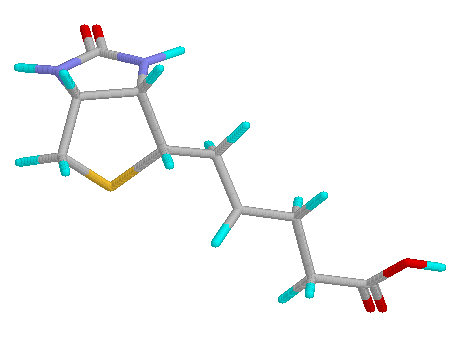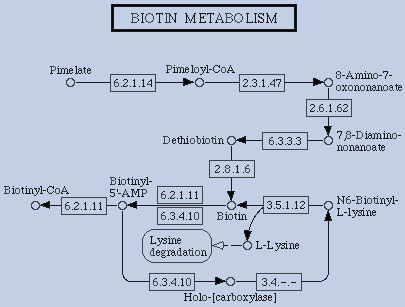
Biotin is a water-soluble member of the B-complex group of vitamins and is commonly referred to as vitamin H. The biochemical acts as a carrier for carbon dioxide in the pyruvate carboxylase reaction, where biotin is linked to the epsilon-amino group of a lysine residue in the enzyme. Biotin is necessary for both metabolism and growth in humans, particularly with reference to production of fatty acids, antibodies, digestive enzymes, and in niacin (vitamin B-3) metabolism. Food sources for biotin are liver, kidney, soy flour, egg yolk, cereal, and yeast. There are suggestions that biotin is also capable of curing baldness, alleviating muscle pain and depression, and functions as a cure for dermatitis, although there is no substantial evidence for any of these claims. Biotin deficiency results in fatigue, depression, nausea, muscle pains, hair loss, and anemia.
Shown below is a diagram showing how the body naturally produces biotin from pimelate. It also shows how the interactions with host enzymes (shown as "Holo-[carboxylase]) allows for the recycling of biotin.
